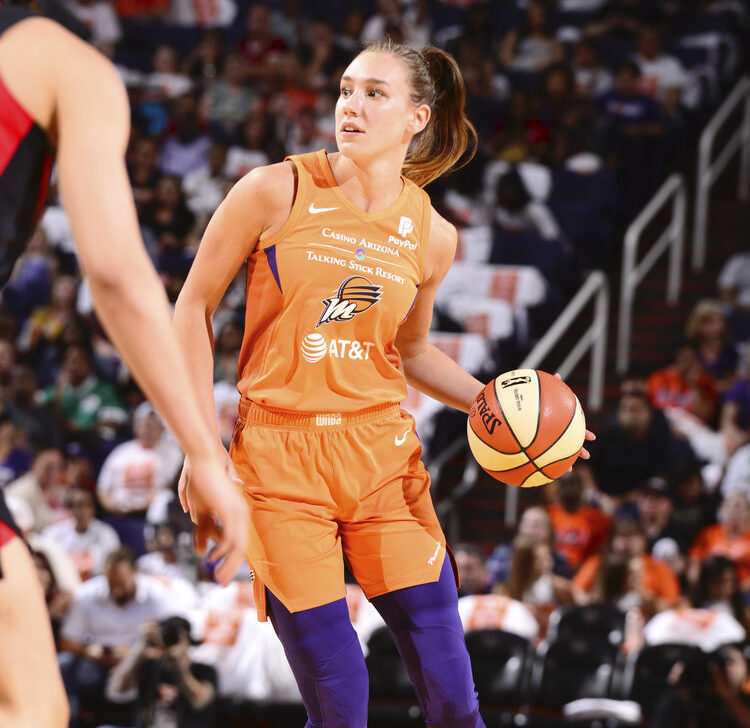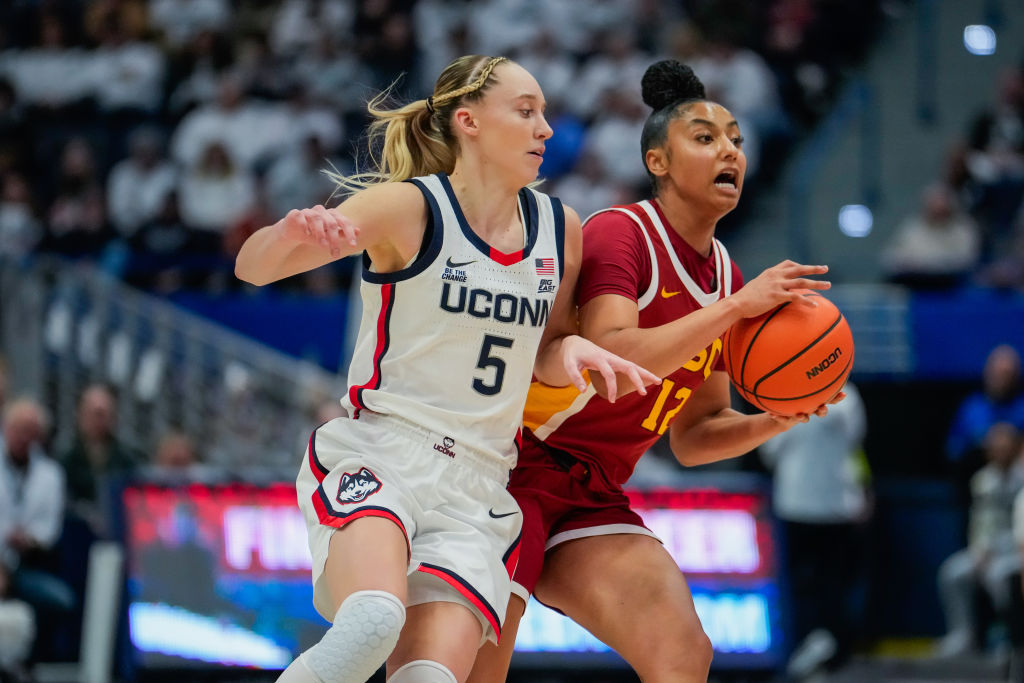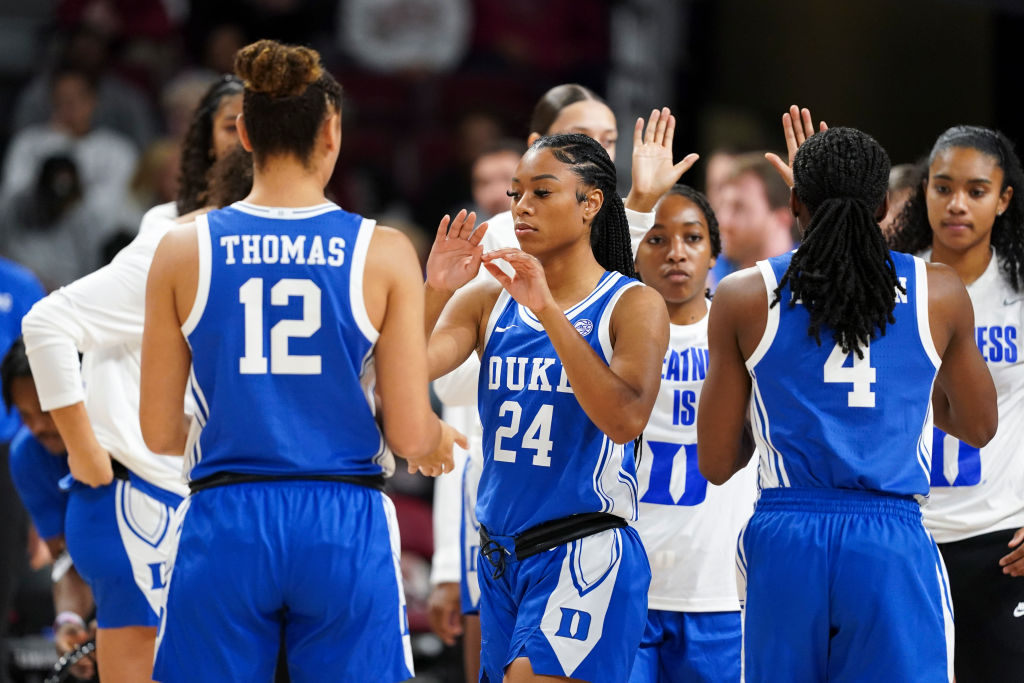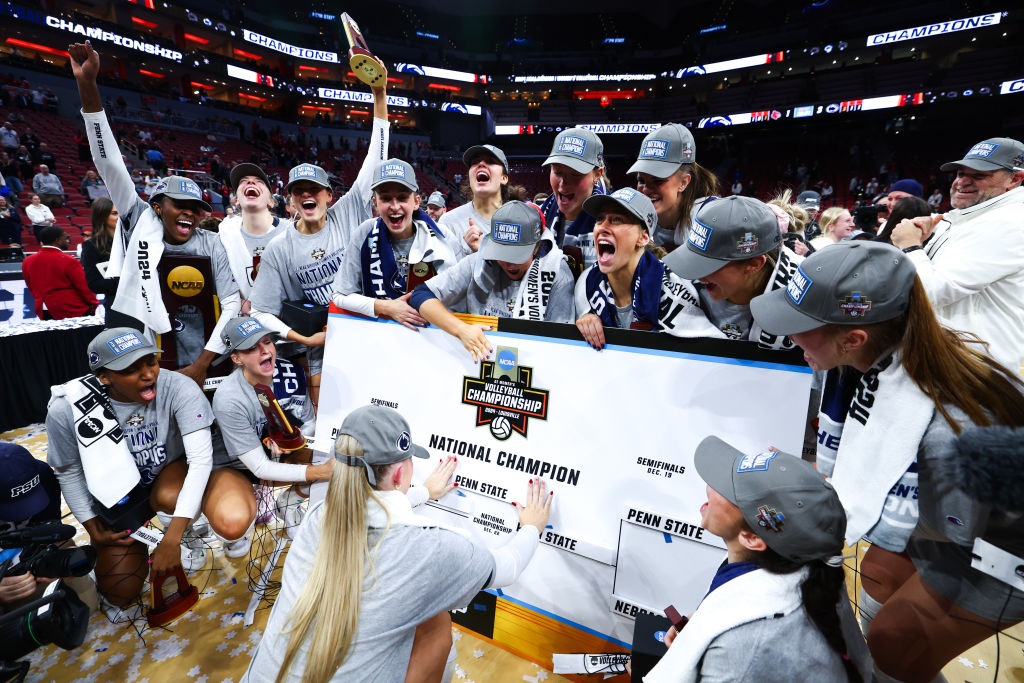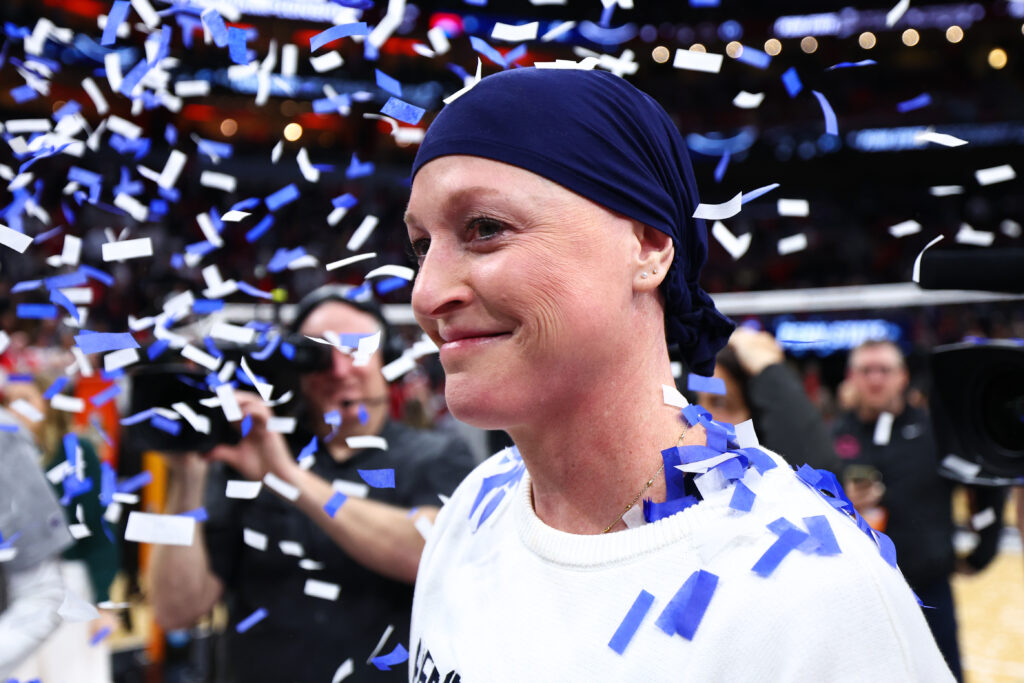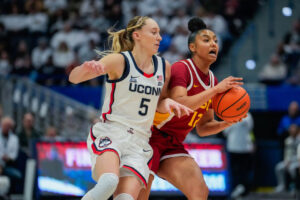Alanna Smith plays as a forward for both the Phoenix Mercury and the Australian National Team. Born in Tasmania, Australia, Smith was an All-American at Stanford University, where she was the Cardinal’s first-ever international recruit.
When did you decide you wanted to play college ball in America?
My uncle went to college in California, and that put the idea in my head. My dad pushed it. Both him and my uncle had played professionally, so they were a big part of my basketball life growing up.
How did you decide on Stanford?
I wanted basketball to be a vehicle to a good education, and Stanford, academically and athletically, was one of the best. It took a while to get on their radar, though. The women’s basketball team had never had an international recruit before, and I had to email them for three months before anyone responded. I stayed persistent and told them that I wanted to do a visit. They finally relented and said I could come. I had to walk right off a 17 hour flight and into a workout for the coaches. It was brutal, but I did enough to pique their interest. Other schools treat you like a celebrity when you’re a recruit, but Stanford is very business-like because they can never promise you admission. So I was thrilled when I finally got the call. I started running around my house.
What was it like going to school 8,000 miles from home?
The first two years were rough. When I arrived, I thought I’d made it. I’d fought my way into my dream school. But because of a national team commitment, I couldn’t come to athlete orientation in the summer, so I had to jump right into classes and basketball in the fall while also adapting to a new country. It was a struggle. On the court, I wasn’t performing as well as I could, and I was having a hard time keeping up with my school work. I developed anxiety and was super homesick, but the 17 hour time difference made it hard to call my family in Australia.
Were you experiencing culture shock?
Yes. I thought the transition would be easy because I’d grown up watching American television, and obviously I spoke English. But there were a lot of subtle cultural differences. Like a lot of Australians, I’m pretty laid back, so I had to adjust to how formal American etiquette can be, especially in restaurants. There’s so much emphasis on service here. And in Australia, we don’t tip. I kept forgetting that my first year, which resulted in a lot of side-eyes whenever I’d leave a table.
I also didn’t know what “tailgating” was. People kept referencing it during the fall in my freshman dorm, so finally I had to ask what they were talking about. I thought it might have something to do with trucks, so I was very confused.
What about on the court? Were there differences in how American players approached the game?
For one thing, I had to start calling out plays with an American accent so my teammates could understand me. In terms of culture, it’s definitely more of a collective mindset in Australia. You always feel like you’re working as a group. The mentality in America is more individualistic, even when you’re on a team. You have to find ways to put yourself out there as a player. That’s not really the case back home.
After that first year, what kind of adjustments did you make?
I had actually gotten a decent amount of playing time off the bench for a freshman despite my struggles, so I thought sophomore year was my time to step up and be a starter. But the season started off the same as the one before. I wasn’t playing well. I still felt homesick. Coach started a freshman over me. I kept thinking, what the hell? This was supposed to get better.
I just had to keep grinding. Toward the middle of the season, I had a break-out game, which instilled some confidence in both myself and my coaches. I started to string more games together, and by the end of the year, I’d carved out my role as the 6th woman. We made it all the way to the Final Four. The next season, I was a full-time starter. And then my senior year, I was an All-American.
Did you ever consider quitting during those first two years?
There were moments I came close, but I had a great support system around me on the team. And having to go through those pains and fight for my minutes meant that once I’d established myself as our top scorer and rebounder, I knew I’d earned it. And I felt I owed it to myself to go out and perform every night because of how hard I had worked to get that opportunity.
How was the jump to the WNBA?
On a more personal level, one thing I had to quickly internalize was that this is a business. You can be cut at any point during, especially as a rookie. You have to be mentally tough to go out there and do your job knowing you might not have it tomorrow.
Do you think having to work your way off the bench at Stanford helped you prepare for the WNBA?
Absolutely. There’s something to be said for having to fight for your spot every step of the way. It weeds out a lot of personalities and teaches you to stay confident even when you’re on the bench. There are some players in this league who have been stars their entire careers, and they have to adjust to not being the go-to scorers. I don’t play some games, but I’m always ready. I know my time will come, so I have to be prepared.
Looking back on your rookie season, what stood out?
It didn’t go exactly as I planned because of injuries, but I still learned so much from some of the best players in the world, and I got to play in the best league in the world. I’m now super keen to start my second year.
How have you changed since coming to America?
Mentally, I’m in a much better place now. A lot of my early college struggles were due to anxiety, which I’ve come to realize is a serious issue for a lot of athletes. More attention needs to be given to mental health in sports. People shouldn’t be afraid to discuss these issues. I know that for me, talking with my teammates and leaning on my family helped me develop a more consistently positive mindset. Words of encouragement from people I trusted were really important.
What are some of your current strategies for dealing with anxiety?
I write a lot of stuff down. Simple as that sounds, it helps. Just writing out what I’m feeling helps me gain some distance from it. And on days when I’m down, I’ll list out things I’m thankful for. Doesn’t matter if it’s big or small: air conditioning, pancakes, having the opportunity to play in the WNBA. Writing it out forces me to take a step back and reflect on the privileges I enjoy. It forces me to remember that no matter my mood that day, I’m ultimately fine. I’m genuinely in a very good spot right now.
Is there any other advice you’d like to pass along?
I’m someone who firmly believes that positivity is required if you want to get anything done. You’ll never have the necessary energy if you’re just feeling awful all the time. The right mindset has to be there before you can really get to work.
